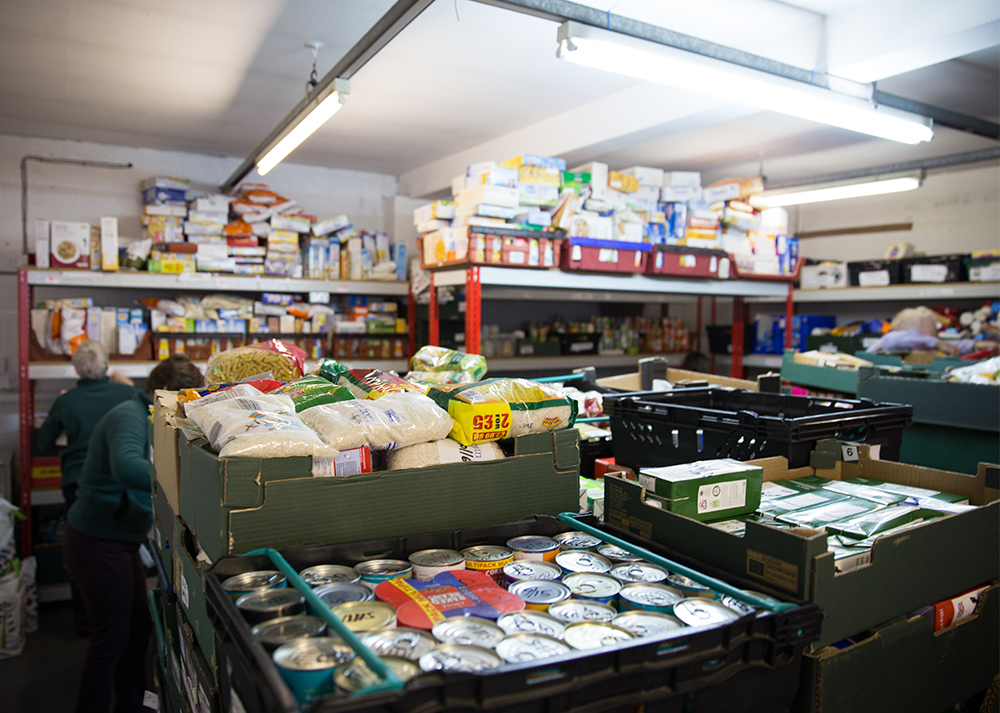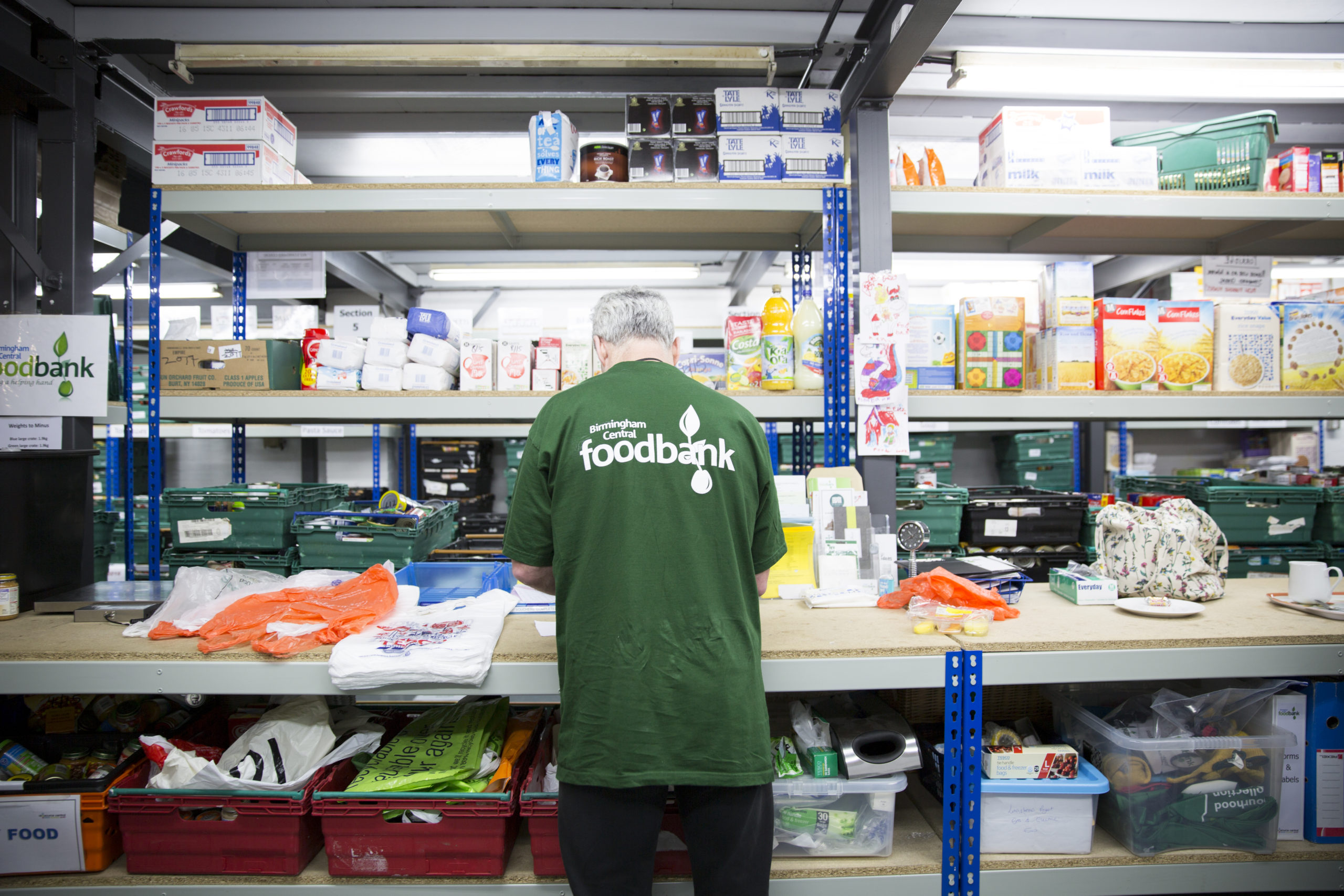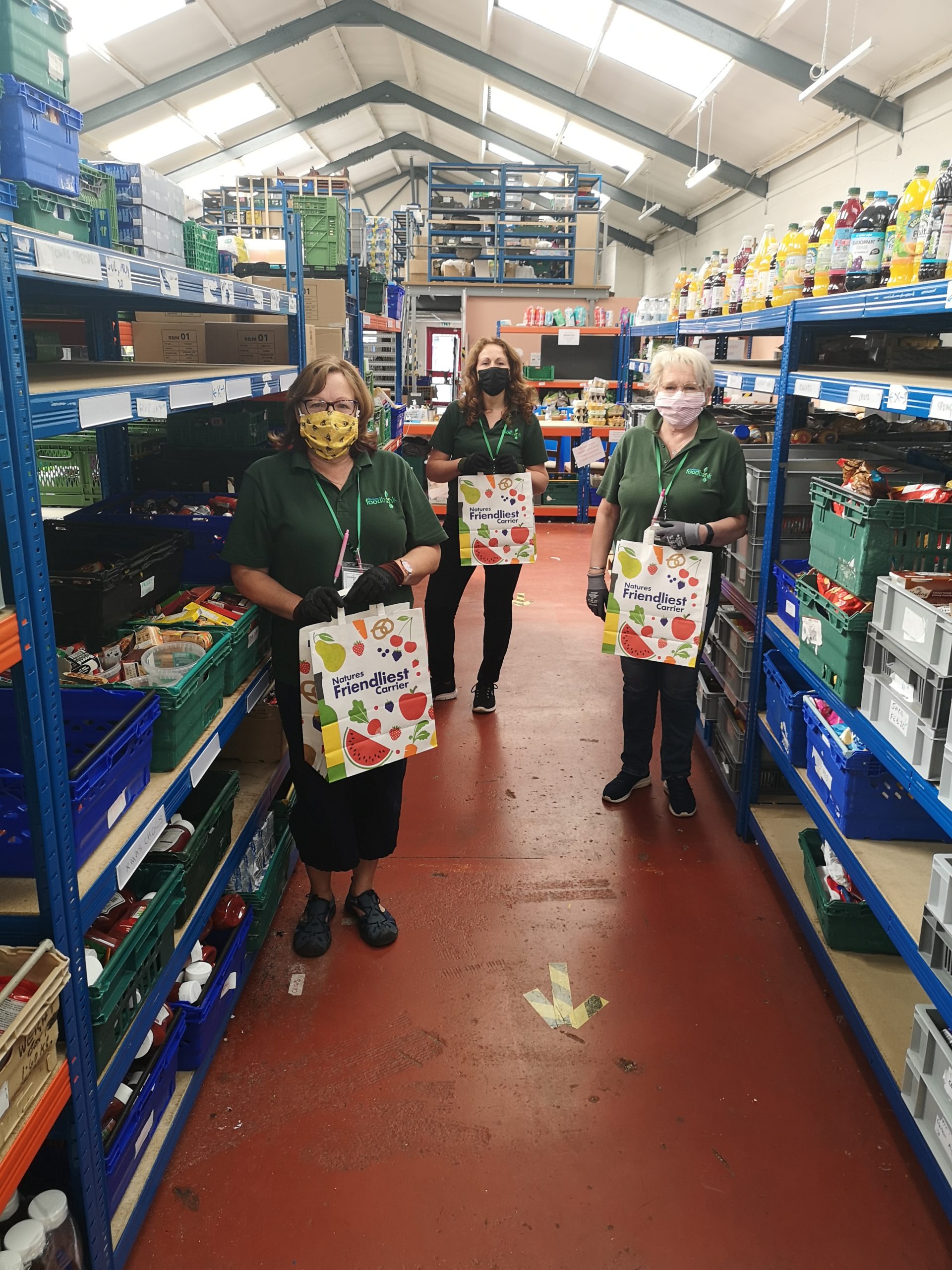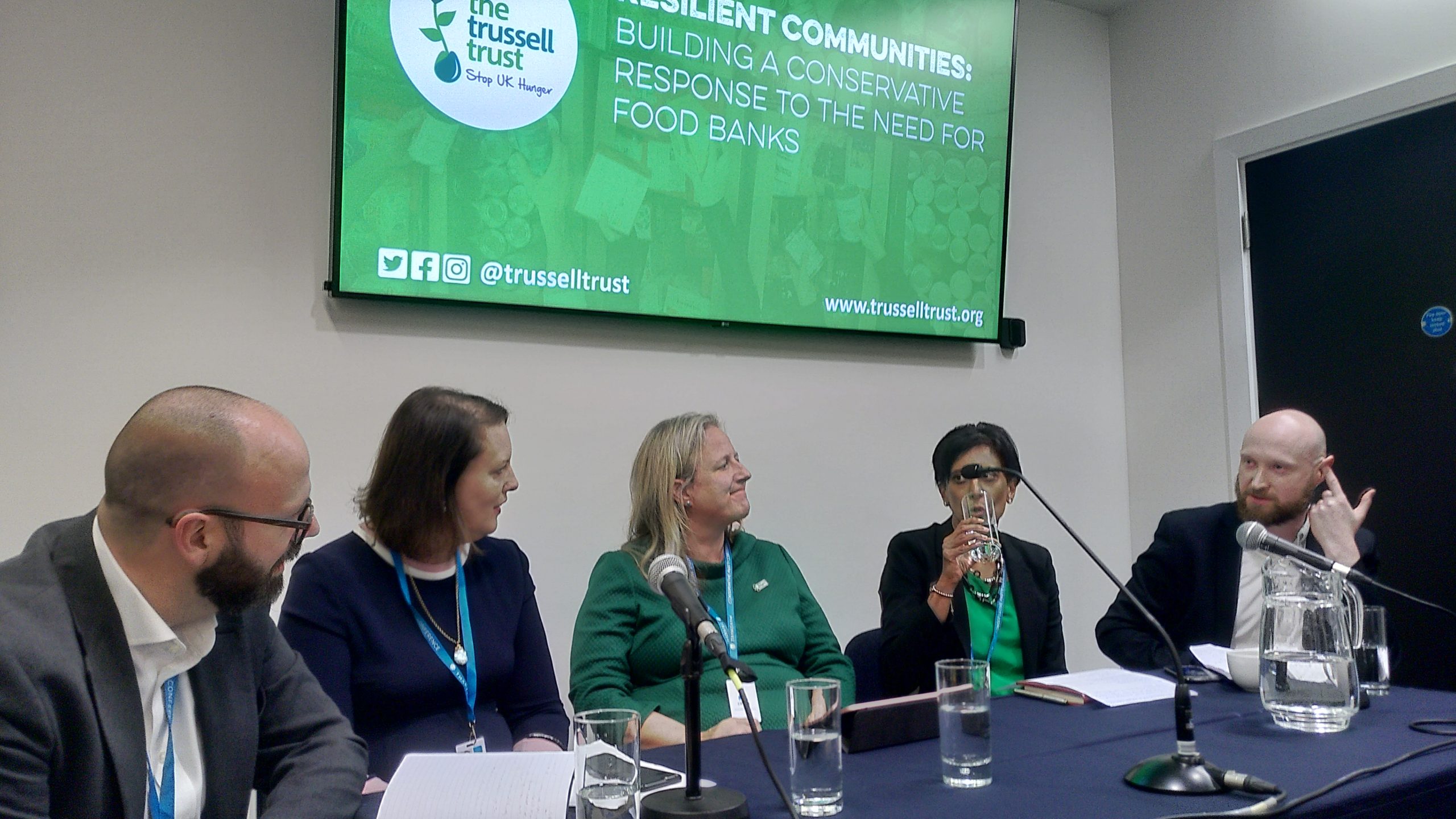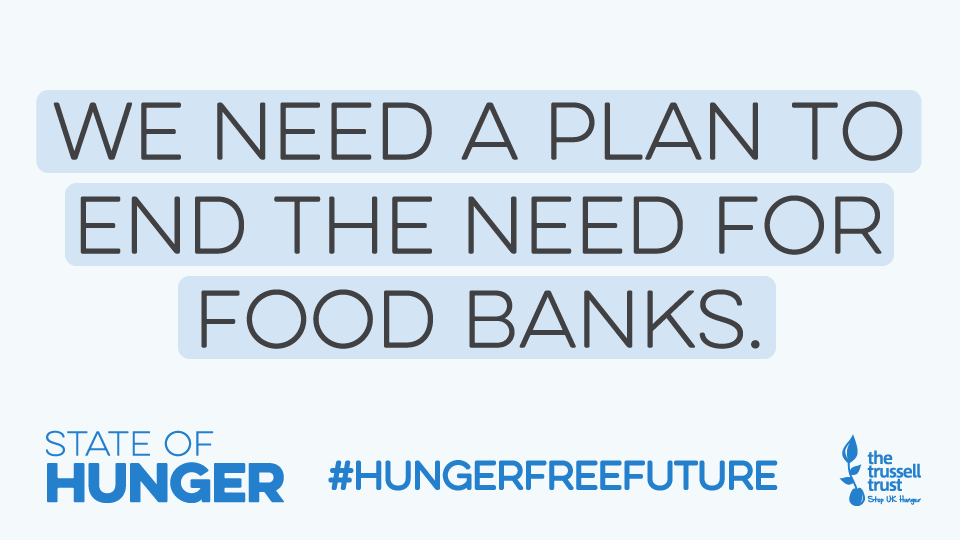The charity says families with children have been hit hardest with almost 2,000 parcels provided for children every day by food banks in its network
New figures released today reveal more than 5,100 emergency food parcels were provided for people every day from April until September this year on average, by food banks in the Trussell Trust network. That’s at least three parcels given every minute and is an 11% increase compared to the same period in 2019, as need for emergency food remains well above pre-pandemic levels.
Alarmingly, families with children have been hit the hardest, with food parcels for children increasing at double the rate for adults, compared to pre-pandemic levels. Between April and September 2021, almost 2,000 parcels were provided for children every day on average, compared to almost 1,700 in 2019.
As more and more people across the country face destitution – meaning they are unable to afford the absolute essentials to eat, stay warm, dry and clean – the Trussell Trust warns need for emergency food is expected to rise further still, this winter and beyond. Food banks in the Trussell Trust network face giving out more than 7,000 food parcels every day in December.
The charity says many families already at breaking point face the fallout of the £20 per week cut from Universal Credit payments that hit this autumn. This is on top of rising fuel costs during the coldest season, as well as soaring inflation.
This is forcing many families deeper into poverty, the charity says, and is leaving people facing impossible decisions where their only option is to either skip meals to provide food for their children or heat their home.
The Trussell Trust’s chief executive Emma Revie says we all need the security and stability of a lifeline to support us whenever we need it and is calling on the UK government to urgently strengthen the social security system. She is also urging the public to donate vital funds to help fight hunger this winter and support the Trussell Trust’s campaign for change to help end the need for food banks.
Emma Revie, chief executive at the Trussell Trust, said:
“Everyone in the UK should be able to afford the essentials – to buy their own food and heat their homes. Yet food banks in our network continue to see more and more people facing destitution with an increase in food parcels going to children. This is not right.
“Our food bank managers expect need to grow further still, saying they will need to provide more than 7,000 food parcels a day during December, as many families are faced with an even tougher winter ahead. This must stop.
“The answer must be for us to have the stability of a strong enough social security system to protect any one of us when we need it. We need government at all levels to take action and are asking the public to help fight hunger this winter and join the campaign to fight for a future without the need for food banks.”
Join the Trussell Trust’s Winter Appeal now by donating vital funds to help us campaign for change so that no one needs a food bank in the future.: trusselltrust.org/impossible-decisions
ENDS
Notes to editors:
Number of emergency food parcels distributed by food banks in the Trussell Trust network in the mid-year period of 2019 and 2021.
| 1st April 2021 – 30 September 2021 | 1st April 2019 – 30 September 2019 | Percentage change | |||||||
| To adults | To children | Total | To adults | To children | Total | To adults | To children | Total | |
| United Kingdom | 579,179 | 356,570 | 935,749 | 534,616 | 309,101 | 843,717 | 8% | 15% | 11% |
- In the mid-year period of 2021 (1st April – 30th September inclusive) these parcels were distributed by 1,468 distribution centres operating in 292 local authorities across the UK.
- Across this period in 2021 food banks in the Trussell Trust network distributed, on average, over three (3.55) parcels to people in crisis every minute.
- Food banks in the Trussell Trust’s network experienced unprecedented increases during 2020 as the economic impact of the Covid-19 pandemic drove people to food banks. This years figures are lower than those seen in the equivalent period in 2020 but remain higher than 2019 and 74% up on the same period in 2016.
- ‘Emergency food parcel’: this typically is a three-day parcel containing emergency food for one person. During the crisis food banks have also been distributing seven-day parcels. For this release the Trussell Trust have simply combined both three-day and seven-day parcels together to report the total number of emergency food parcels that were distributed.
- Need for emergency food is driven by a lack of income. The Trussell Trust’s State of Hunger research shows that 95% of people referred to food banks are destitute, meaning they don’t have enough income to buy the essentials that we all need. State of Hunger
- Figures from the Trussell Trust network cannot be used to fully explain the scale of food bank use across the UK. The Independent Food Aid Network (IFAN) has identified at least 1,124 independent food banks while there are also Salvation Army food banks as well as food banks run from schools and hospitals. There are also thousands of other food aid providers including soup kitchens and social supermarkets.
Contact
Contact the Trussell Trust for more information on 020 3137 3699 or [email protected]
About the Trussell Trust:
- We’re here to end the need for food banks in UK.
- We support a UK-wide network of more than 1,300 food bank centres and together we provide emergency food and support to people locked in poverty, and campaign for change to end the need for food banks in the UK.
- Our most recent figures for the number of emergency food supplies provided by our network: https://www.trusselltrust.org/news-and-blog/latest-stats/
Read more
